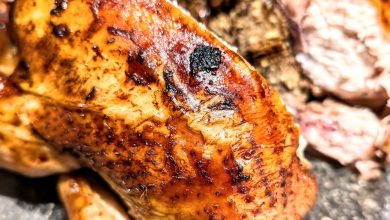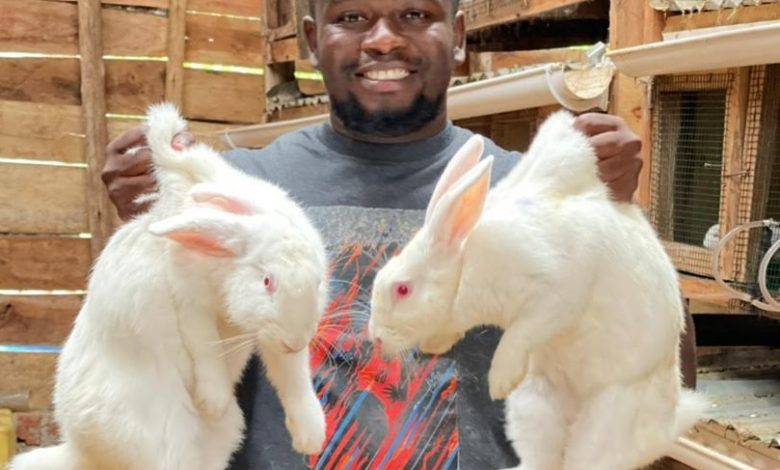
From journalist to proud rabbit farmer: Here’s Woniala’s inspirational story
When Denis Woniala decided to retire from active journalism to self-employment, many options came up and farming was one of them.
He says chicken rearing seemed the easiest thing he could venture into, so he sought to establish the Dukes Farm as his first shot at self- employment.
“Chicken farming was the first enterprise we wanted to do at the Dukes Farm but when we did research, we realized that the cost of starting a chicken farm was way higher than we expected,” Woniala says of his start.
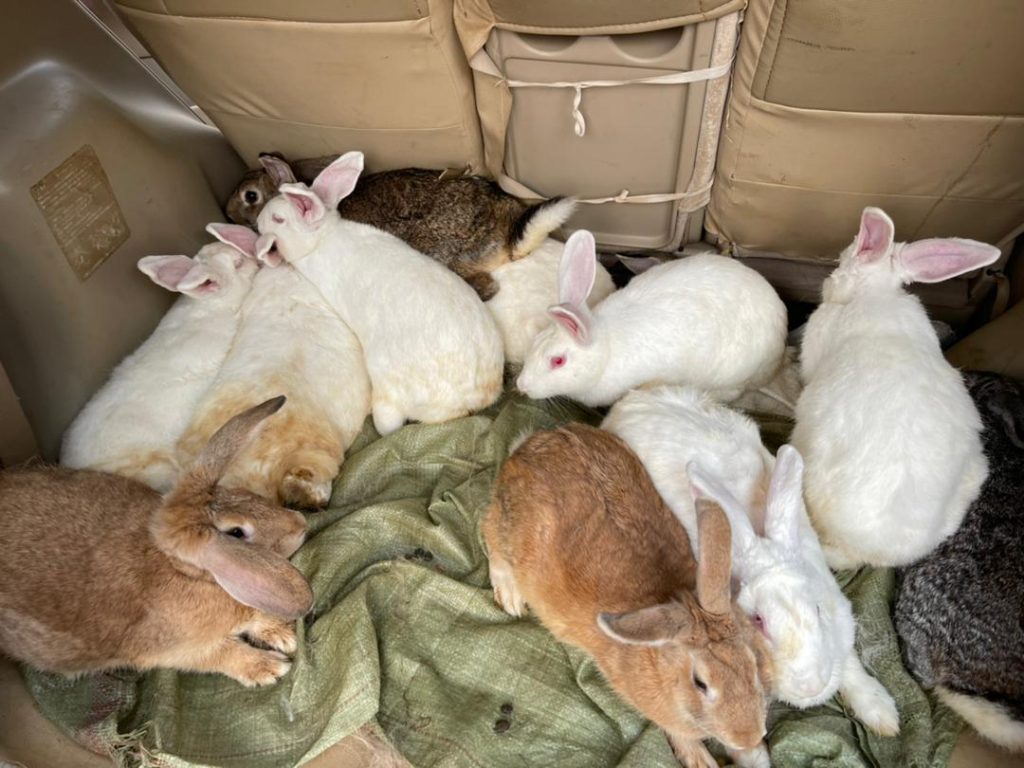
Passion for rabbits
He says that while in primary school in his village in Eastern Uganda, he used to rear rabbits at home and had fallen in love with the animals.
According to Woniala, having realized chicken business was a bit more expensive, he realized rabbits could come in handy since he also had passion for them right from his earlier days in primary school.
“With this passion for rabbits, I settled for them. In addition, rabbits mature quickly and return on investment is realized quickly. Our farm was birthed in 2020 but actualized in 2021.”
The start
Woniala says it cost him around Shs 120 million to put everything together, including buying a two-acre farmland, fencing it and putting up structures.
“I used my little savings but they were not enough so I had to get a loan which I later paid off using our first sales.”
“We purchased two acres of land, fenced them off, built rabbit structures and cages. A water system, workers’ house, toilets and planting of grass for animals were done using the money.”
As with every new venture, Woniala admits the start was a rocky one since he had too little experience rearing rabbits on a large scale and for commercial purposes.
He says that he had to endure losses in the early stages of the farm and he could not readily recoup the money he had invested.
He says he had to learn proper record keeping but also market the farm so as to be able to sell the animals.
“But luckily we have had successes. All this thanks to God but also due to our commitment and dedication. Rabbit farming requires time among other things to be successful.”
He says the farm located in Mukono along the Katosi road now boasts of 500 rabbits and they sell animals every day whereas new ones are also born almost on a daily.
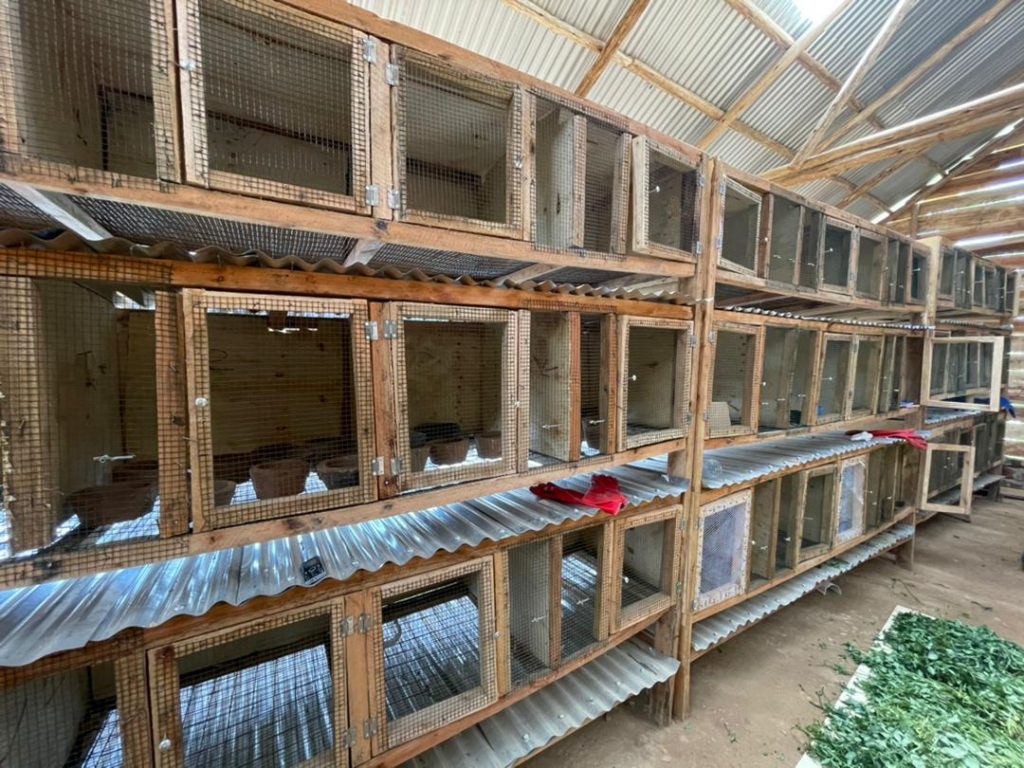
Market
Woniala says that the issue of market is not a difficult one since those who want rabbits are readily available, almost everywhere.
“Rabbit market is wide. One can choose to sell meat or breeders to intending farmers or do both. For meat, demand is high especially in restaurants. However the challenge is steady supply and maintaining quality and standards,” he says.
Despite the market being readily available, the young entrepreneur says the market doesn’t come looking for you.
“Like any other business you have to look for market. For my farm I used my social media platforms to market my rabbits and it paid off. I have never suffered with market.”
He says getting committed and trusted workers plus high cost of feeds are some of the challenges that he has encountered since the rabbit farm started in 2021.
“The prices kept fluctuating and this affected our budget. We were affected by the weather. We experienced a long dry spell and this affected the growth of grasses and subsequently grass supply,” he says.
Proud rabbit farmer
Despite all he has gone through, Woniala says he is proud of the rabbit farmer he has become and doesn’t regret having left journalism to venture into self-employment.
“Apart from being able to earn a decent living, I have been thrilled by attaining so much in just one and a half years of our existence. It has given me the opportunity to work at my own time and schedule and this has increased my productivity not just at the farm but in every venture I am involved in,”Woniala says.
He says rabbit farming is a venture he would recommend any youth to join, adding that he wants to make the Dukes Farm a model farm in the country.
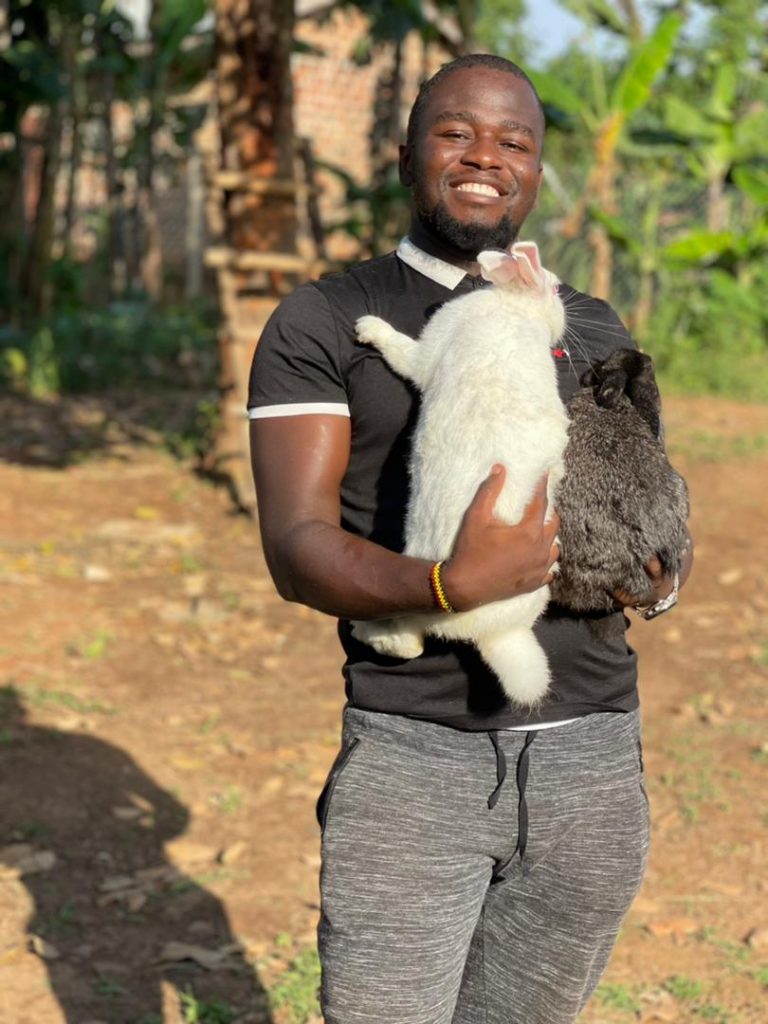
“We want to expand the Dukes Farm across the country with branches in different places to be able to employ more people but also interest many others into rabbit farming. Our Mukono farm will be a model farm while the rest of the farms will be used for massive production.”
According to Woniala, he intends to venture into goats, fish and chicken, and to this, he says they have started on goats at a small scale.
“We want a full mixed eco farm.”
Woniala has some piece of advice to youths who would like to be successful in life.
“Believe in yourself. Don’t fear to start as long as you make enough research on the investment you intend to do. Don’t fear to get a loan as long as you can invest it wisely. Always start small and in case you mess up, the losses will be minimal. But above all have big dreams and trust God in everything you do,” Woniala says.
The youthful entrepreneur also asks government to invest more into the agricultural sector since it has the potential of changing the economy of the country.
“Government should put up policies that support agriculture and invest in the youth through project financing. This way, employment will be created for many people, especially youths,” he says.



